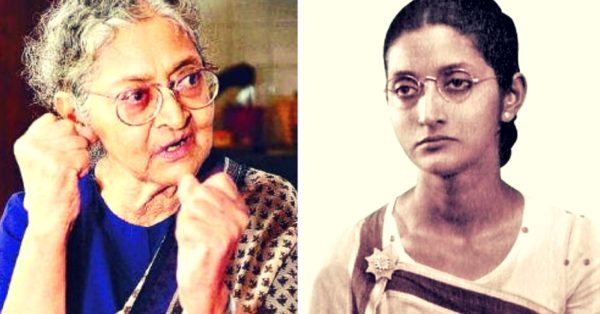Over the years, India has had several woman diplomats, ambassadors and high commissioners who have done stints in countries like the USA, China, Spain, Sri Lanka, Australia, Lebanon, Bangladesh, Qatar, Switzerland, Serbia, Russia, Slovakia and Ghana. We’ve also had two women Foreign Secretaries – Chokila Iyer and Nirupama Roy – who were highly respected for their tough stance and unflappable poise during their years of distinguished service.
It’s a far cry from what India’s first IFS woman officer, Chonira Belliappa Muthamma, had to face when she joined service in 1949.
In an age when most Indian women didn’t even try getting into foreign service, this gutsy Kodava woman didn’t just choose IFS when she qualified UPSC, she fought gender bias, stood her ground and went on to become India’s first female ambassador.
Born in Virajpet in Karnataka’s Kodagu (then Coorg) district in 1924, Muthamma lost her father, who was a forest officer, when she was nine. Raised singlehandedly by her mother, Muthamma completed her schooling in St Joseph’s Girls School in Madikeri before graduating from the Women’s Christian College in Chennai (then Madras) with a triple gold medal.
Muthamma completed her post-graduation in English Literature from Presidency College in Chennai before deciding to appear for the UPSC examinations. She performed brilliantly, becoming the first Indian woman to clear the UPSC examinations in 1948. She wanted to join the Indian Foreign Service but the board that interviewed her discouraged her from joining this ‘not suitable for women’ service.
However, Muthamma was determined to get her choice of service. She convincingly argued her case, stood her ground and joined the foreign services in 1949, becoming India’s first IFS woman officer. Incredibly, she had to sign an undertaking which stated that she would resign if she got married. However, after a couple of years, the rules were changed.
For the next few decades, Muthamma served with distinction in many capacities in Europe, Asia and Africa. However, she had to fight against gender bias all through her diplomatic career. Despite serving in the foreign service for long, her case was overlooked when it came to posting her as an ambassador.
Not the one to accept any injustice lying down, Muthamma filed a petition against the Indian government in the Supreme Court on the ground that she had been unjustly overlooked for promotion. The determined and stubbornly honest officer argued that the rules governing the employment of women in the service were discriminatory.
The government of India, represented by Solicitor General Soli Sorabjee, argued that that the chances of leakage of confidential information of strategic significance was a dangerous risk, should women ambassadors marry. Realising that this was flagrant prejudice against women, the court asked the Solicitor General how leakage of information was not a possibility if a male ambassador married.
Finally, in 1979, a three-member Supreme Court Bench headed by Justice V.R. Krishna Iyer quashed the government’s argument, struck down the discriminatory provisions governing foreign service personnel and upheld Muthamma’s case.
The nation’s apex court also impressed upon the government of India “the need to overhaul all service rules to remove the stains of sex discrimination, without waiting for ad-hoc inspiration from writ petitions or gender charity.” A landmark judgement for women’s rights in India, it was distributed at many a women’s meeting in support of their struggle for equality.
Consequent to this ruling, Muthamma was posted as India’s Ambassador to Hungary in 1970, the first woman from within the service to be appointed to this prestigious post. Later, she served in Ghana and her last posting was as Indian Ambassador to the Netherlands.
After 32 years of exemplary service, she retired from the IFS in 1982 but only after breaking the South Block’s glass ceiling for the women who joined the IFS after her.
Even after retirement, Muthamma remained active in various fields. She was nominated as the Indian member of the Independent Commission on Disarmament and Security Issues set up by the then Swedish Prime Minister Olaf Palme. She was also a prolific writer, and during her retirement authored several works on a range of interests, from a cookbook on Kodava cuisine to a collection of scholarly articles titled “Slain by the System: India’s Real Crisis.”
People like Chonira Belliappa Muthamma come along very rarely. Civil servants like her are rarer. The courageous lady lived a life only a handful of other women of her time lived, fighting a lonely battle against the sexist principles – a few written, many more unwritten – that governed the Indian civil services of her time. A woman who broke barriers and set examples, she inspired many other Indian women to take up the challenge of civil service in the coming years.



Leave a reply